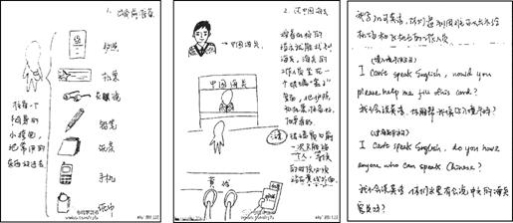题目内容
完形填空。
This past Thanksgiving Day the boss of the company I work for decided to serve a Thanksgiving meal for the poor. I couldn't______this and decided that I wanted to ______! I could deliver foods and send out my smile card.
I arrived at my ______ around 11 and found a line of families waiting outside the doors. I wasn't sure ______ I wanted to give my card to because there were so many people there ______I knew I wanted to give it to a mother.
I served ______ table plates of turkey with all the fixings and slices of pumpkin pie for desert. Everyone was so happy and honestly seemed ______ for what my co-workers and I were doing.
At my last______there was an older lady with about eight kids. She looked tired, but ______ that her children were ______ . Smiling at her, I exchanged a few words ______ her and knew that she was a foster mom(养母) and that______she would have liked to cook at home she couldn't ______ it because of the size of her family. She then thanked me for ______ time with my family to serve hers.
She burst______ a smile and gave me a hug ______I gave my smile card to her.
At the end of the day I didn't think about how I gave up time with my ______ to do this because I got so ______ out of this special and unforgettable experience, ______made me so incredibly thankful for ______I have and I now realize it is important to give back, and not just on the holidays.
1.A.escape B.accept C.forget D.miss
2.A.ignore B.sign C.help D.take
3.A.factory B.company C.home D.farm
4.A.what B.when C.who D.where
5.A.but B.so C.and D.while
6.A.an amount of B.a number of C.the series of D.the number of
7.A.thankful B.regretful C.confused D.amused
8.A.round B.table C.turn D.desk
9.A.surprised B.upset C.happy D.curious
10.A.sitting B.singing C.laughing D.eating
11.A.with B.for C.about D.over
12.A.in case B.as though C.even if D.so that
13.A.pay B.think C.succeed D.afford
14.A.putting up B.giving up C.taking up D.making up
15.A.in B.out C.onto D.into
16.A.hardly B.slightly C.carefully D.immediately
17.A.family B.friend C.boss D.co-workers
18.A.much B.little C.many D.few
19.A.as B.which C.what D.it
20.A.something B.somebody C.everything D.Everybody
 阅读快车系列答案
阅读快车系列答案

